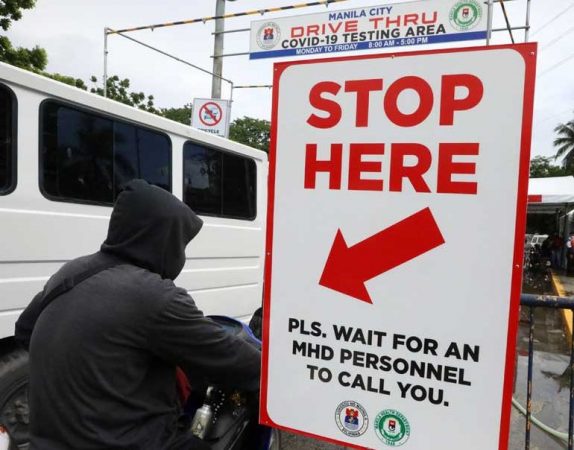
LOCAL GOVERNMENT UNITS (LGUs) will likely face substantial fiscal stress over the short to medium term, as tax collections continue to decline due to the coronavirus disease 2019 (COVID-19) pandemic, the Development Budget Coordination Committee (DBCC) said.
In its Financial Risks Statement report for 2021, the DBCC said the collection target of local treasurers has been slashed to P171.85 billion this year, 44% less than its pre-crisis goal of P307.08 billion “due to the financial hardship and economic impact brought about by the COVID-19 pandemic.”
“The COVID-19 pandemic has caused sudden economic shock…. The fiscal stress to LGUs is expected to be very substantial as they are at the frontline of the pandemic’s response and mitigation efforts,” it said. Fiscal stress is the gap between projected revenues and expenditures.
If another wave of coronavirus infections occurs, the interagency body warned the impact on revenues and an increase in spending would mean another P115 billion in quarterly funding requirements for LGUs and another round of budget realignments.
The DBCC said the impact on local tax revenues will likely be more pronounced in 2021 since local tax assessments will be based on this year’s weak collections and the reduced capacity of taxpayers who are affected by the economic slowdown.
The DBCC has set a P144.89-billion collection target for LGUs in 2021, 16% less than this year’s already-revised goal.
“Anticipating improvements in the economy, local revenue collection would still grow conservatively with a projected increase of 10% annually and reach P159.38 billion to P192.85 billion from FY 2022 to FY 2024. These projections would be adjusted once the Q2 FY 2020 data becomes available,” it said.
The DBCC also flagged the “conservative” borrowing performance of LGUs that could have been used to fund their projects. The total outstanding balance of LGU borrowings are at P108.07 billion or 0.58% of the nominal gross domestic product (GDP).
By 2022, LGU budgets are expected to grow because of a Supreme Court ruling increasing their share of National Government revenue. However, this is also seen to be affected by the lingering impact of the pandemic, the DBCC said.
The DBCC is considering shifting the implementation of programs, activities and projects worth P404.5 billion, currently handled by the National Government (NG), to LGUs in response to the ruling on the Mandanas-Garcia petition.
It estimated P234.4 billion (equivalent to 0.92% of GDP) will be needed once the ruling takes effect in 2022.
“The Executive is currently considering three measures to mitigate the impact of the SC ruling: (i) submit a legislative proposal to Congress lowering the LGU share from 40% to 30% of national taxes; (ii) declare an ‘unmanageable fiscal deficit’ to bring down the LGU share from 40% to 30%; and (iii) gradually devolve services to LGUs,” the DBCC said.
The pandemic will also affect the 2023 tax allocation transfers of internal revenue allotment (IRA) to LGUs as these will be based on the weak tax collections this year.
“The anticipated increase in the LGUs’ adjusted IRA in consideration of the SC ruling on the Mandanas case in FY 2022 will therefore be short-lived and may continue in FY 2024 if collections for FY 2021 of NG will not significantly recover,” it added.
Economic managers also suggested revisiting the current formula in computing IRA.
“In light of the SC ruling on IRA, it is imperative that a review of the IRA formula be considered to address the fiscal imbalance on intergovernmental transfers, the effect on the limited fiscal space of the NG, the growing surplus of LGUs, and inadequacy of its design to address development constraints in rural and low-income LGUs,” it said.
The National Economic and Development Authority, the Budget department and the Department of Interior Local Government are now drafting an executive order for the preparation of devolution transition plans.
“Engagements with development partners to discuss the organizational implications of devolving functions and services, clarify functional assignments at different LGU levels, and analyze the economic impact of the SC ruling are also ongoing,” the DBCC added.
To mitigate the impact on the fiscal standing of LGUs, the economic team said they can redirect funds, use savings, adopt austerity measures, and tap other sources of financing.
“Adequate fiscal resiliency measures should be adopted to allow gradual recovery of local business, through grant of short-term relief and incentives, phased implementation of increased tax rates or fees and charges, and adopt local stimulus programs for productive sectors of agriculture, transportation, tourism, and other services that will revitalize local economy,” it added.
The pandemic also had a huge impact on GOCCs’ financial position, economic managers said.
“The Governance Commission continues with the streamlining of the GOCC Sector by recommending 6 GOCCs for abolition and/or privatization and merger of 3 GOCCs to the Office of the President by the end of 2017. From 157 in 2011, only 119 GOCCs remain to be going concerns for the Governance Commission in 2020,” it said.
GOCCs remitted P150 billion to the government in the seven months to July through dividends, feed and return of unused subsidies to help boost its war chest against the pandemic. — Beatrice M. Laforga
